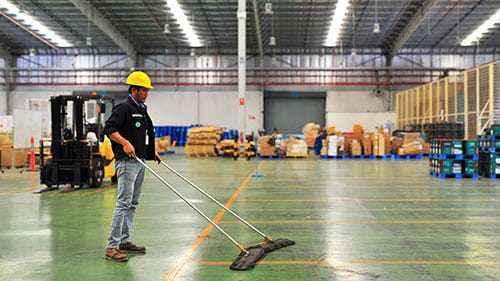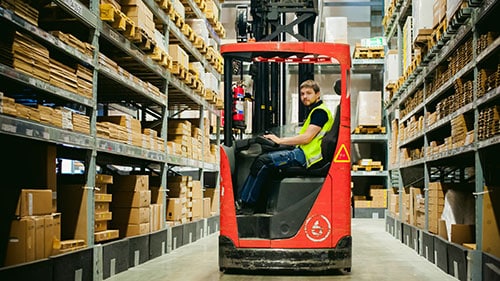
Regional Supplemental Services

Choose RSS to fill your temporary machine operator positions
Keep your factory running seamlessly with RSS Inc’s skilled machine operators, including:
CNC Computer Numerical Control All Types
Metal Furnace Operators
Lathe CNC & Standard
Extrusion Operators
Crane Overhead
Boring Mills CNC & Standard
Various additional Machine Operator positions




Proven track record
Proven track record of success in placing hard-to-find candidates in a wide variety of industries
Strategies for long-term employment
Strategies for long-term employment so you can keep your staff on board for as long as you need them
Immediate assistance
Immediate assistance in the event of an emergency so you can rest assured that your business will remain productive
Cost-cutting strategies
Cost-cutting strategies that can help you save money on your staffing expenses
Seasonal job protection
Seasonal job protection so you don’t have to worry about your employees being laid off at the end of the season
A family-owned business
A family-owned business committed to providing you with exceptional service
An Unparalleled Record of Performance
Leveraging the expertise of qualified machine operators ensures production success. Our staffing agency offers you access to machine operators, machinists, and technicians with considerable knowledge and experience in running machinery, as well as programming it for peak performance. The perfect solution when your team needs an extra helping hand – trust RSS to deliver reliable workers every time!
Client Testimonials
Frequently Asked Questions
What does a machine operator do?
A machine operator performs a diverse set of tasks requiring precision and efficiency to ensure successful operations. In addition to machine set-up, loading, and calibration, machine operators must have the skill set necessary for monitoring machine performance during production. Troubleshooting involves assessing machine performance and identifying malfunctions to maintain optimal production. The machine operator’s responsibility is to ensure that machines are running efficiently so that all aspects of the production process can proceed without interruption.
What are the duties and responsibilities of a Machine Operator?
Machine operators are responsible for the safe and efficient operation of various machinery and equipment. They must have a strong understanding of how machines work, as they need to troubleshoot any issues that arise. They also need to be able to read technical drawings, schematics, and blueprints to understand how the machine should be operated and maintained. Machine operators ensure that machine settings and speeds are correct, maintain quality standards, record production data, and identify any machine malfunctions. They also work with other staff to ensure machine safety protocols are followed. Training is typically required for machine operators to become familiar with the machine they are working with and understand how to use it properly.
Additionally, they need to be able to keep up to date on any changes or updates in machinery technology, industry regulations, and safety standards. The job of a machine operator can vary by industry. Still, some of their daily tasks include setting up machines for production runs, performing test runs on new machines, monitoring machine performance during operation, making minor repairs or adjustments if needed, and maintaining cleanliness around the machine equipment.
What makes a good Machine Operator?
Being a machine operator requires more than just technical knowledge and experience. To succeed in this role, interpersonal and communication skills are key traits. A machine operator must possess good problem-solving skills to troubleshoot issues with the machine or its parts. They should also have strong attention to detail to identify potential problems early on and take preventative measures to avoid them. Additionally, machine operators must demonstrate excellent organizational abilities to stay organized during their shifts and understand safety protocols to ensure everyone’s safety at all times. Lastly, machine operators should be able to work effectively in teams and possess a positive attitude towards their job duties.
Who does a Machine Operator work with?
The machine operator is an integral part of the manufacturing process, working as part of a team with other operators and machinists to ensure their equipment functions properly and remains in top-notch condition. Communication is key, as machine operators often collaborate with their colleagues to maximize productivity. In addition, machine operators may work with a maintenance technician, who is responsible for addressing any issues affecting the machine’s performance. With the perfect combination of team effort and technical expertise, machine operators ensure products are delivered efficiently and safely.
What skills are important for a Machine Operator?
A machine operator needs more than basic machine operating skills; they must be experienced and efficient to excel in their job. Highly desirable qualities include:
- strong mechanical attitude
- excellent interpersonal communication skills
- keen ability to troubleshoot malfunctions
- high level of proficiency in safety protocols
- great problem-solving abilities
- organizational skills
- precision and attention to detail
- mentoring abilities
- manual dexterity
- physical stamina and mental focus
- flexibility
- basic math and reading skills
What are the requirements for becoming a manufacturing machine operator?
When companies hire machine operators, they look for candidates who have previous experience with machine operations within a manufacturing environment first. Depending on the position being applied for, a combination of prior training or certifications may be needed to stand out as an ideal candidate. Some companies offer apprenticeships. Many entry-level roles don’t require formal education beyond high school/GED; however, prior job experience can often make up this requirement if other qualifications are met – such as previously working with safety protocols and precision workmanship. With today’s technological advancements in machines, those with computer savviness will also have an added advantage. There are often physical requirements, such as the ability to occasionally lift and carry up to 75 pounds and push and/or pull up to 90 pounds.
Is a machine operator the same as a machinist?
A machinist and a machine operator may appear similar, but they have distinct roles. Machine operators are the watchful eyes behind a successful production line, ensuring their equipment runs optimally. Machinists take it one step further; they possess advanced knowledge in using blueprints and schematics for manufacturing or restoring components of machines—all with precise accuracy from specialized tools and machinery. Collectively, these diligent experts contribute essential expertise so businesses can meet quality standards while keeping production running smoothly.
Why should I work with a machine operator recruitment agency?
Recruitment agencies that are temporary staffing agencies help employers find temporary workers to fill vacancies for situations such as seasonal needs, vacation coverage, or extra help for large projects. Using a recruitment agency shortens the time it takes to fill these open positions. Recruitment agencies have an extensive talent pool with reliable workers ready to deploy. These agencies usually handle benefits such as health insurance, sick pay, vacation pay, worker’s comp, and retirement plans, plus administrative tasks, including payroll and taxes, saving you overhead, payroll and benefits costs.
For Employers Looking for Staffing Solutions?
Employers please submit the form below regarding your need for staffing solutions.


